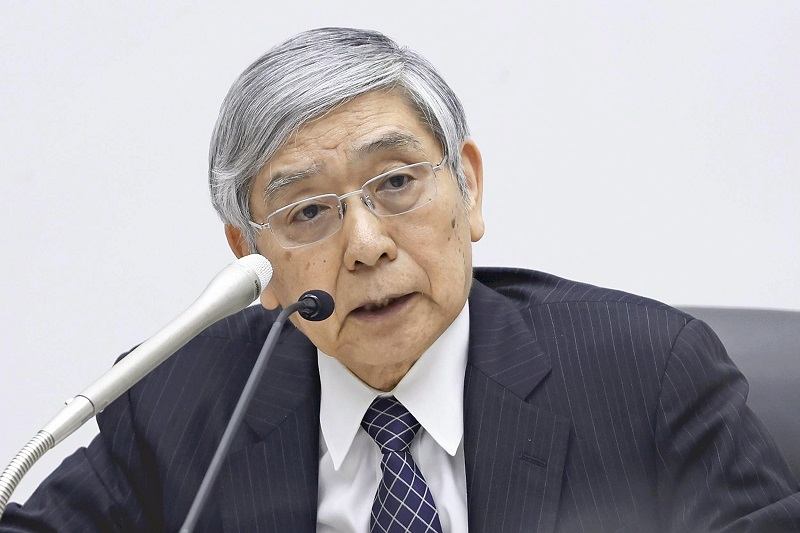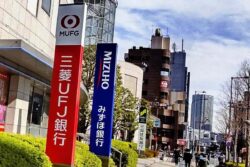BOJ policy at crossroads with inflation above 2% Target

Bank of Japan governor Haruhiko Kuroda is seen at a press conference in June
17:48 JST, September 6, 2022
TOKYO (Jiji Press) — Inflation in Japan has climbed at a pace beyond the Bank of Japan’s 2% target, set to tackle more than two decades of deflation, but the price gains stemmed from cost pressures overseas rather than the desired development of a vigorous Japanese economy.
The unwelcome price environment has aroused speculation that the central bank might wind up its unprecedented large-scale monetary easing in order to curb the higher prices and arrest the yen’s rapid falls against other major currencies, which push up import prices.
BOJ Governor Haruhiko Kuroda, however, has categorically ruled out an immediate monetary policy reversal, standing out among world central bankers, worried more about the risk of the economic downturn that may follow an interest rate hike than about the adverse effects of a further weakening of the yen and the more elevated import prices induced by the BOJ persisting in monetary easing.
The BOJ is at a crossroads, as consumers may cut back further on spending if they cannot get wage growth larger than price increases, which would act as a drag on the economy.
At its monetary policy meeting in July, the BOJ decided to keep its massive monetary easing framework unchanged. At the same time, in a quarterly Outlook for Economic Activity and Prices report, the BOJ revised upward its forecast for the year-on-year growth of the core consumer price index, which excludes often volatile fresh food prices, for the current fiscal year through March 2023 from 1.9% to 2.3%.
It was the first time since fiscal 2003, the earliest year for which comparable statistics are available, that the core CPI growth estimate for the nearest year has topped the BOJ’s 2% target, excluding fiscal 2014, when prices were lifted by a consumption tax increase.
Inflation in Japan has been accelerating due to a series of hikes in food prices and utility bills driven primarily by Russia’s invasion of Ukraine. The core CPI climbed 2.4% in July, rising faster than 2% for the fourth straight month. The growth was the highest since August 2008, excluding the period affected by the tax hike.
Despite inflation in excess of its target, the BOJ remains cautious about raising interest rates because it believes that the price increases are a one-off phenomenon. Reasoning that the straightforward rise in energy prices is unlikely to continue for an extended period of time, the BOJ’s quarterly outlook report projected the core CPI growth at 1.4% for fiscal 2023 and 1.3% for fiscal 2024, both below the 2% target.
At a news conference after the July policy meeting, Kuroda emphasized the need to bolster the economic recovery with monetary stimulus to pave the way for pay increases. “We have no intention at all of raising interest rates,” Kuroda said. “We will continue the monetary easing strenuously to provide solid support for the economy.”
By contrast, the U.S. Federal Reserve raised interest rates by 0.75 percentage point, three time the usual increment, for the second consecutive month in July, in an attempt to rein in the fastest inflation in decades in the world’s largest economy.
Also, the European Central Bank decided in July to jack up interest rates for the first time in 11 years, putting an end to its negative rate policy. The central banks of other countries, including Britain, Canada and Australia, have tightened monetary policy as well.
Even considering that inflation in Japan is running slower than in Europe and North America, the BOJ is an outlier in sticking to its massive monetary easing regime.






